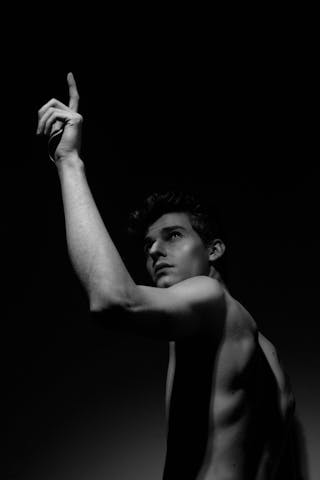The recent release of a new Wonder Woman poster has sparked quite the controversy among fans and the LGBTQ+ community. The poster, which features the iconic superheroine played by Gal Gadot, has some fans speculating about Wonder Woman's sexual orientation. Many are questioning whether she might be gay or bisexual, and the debate has ignited a conversation about representation in the superhero genre.
Have you seen the latest Wonder Woman poster? Fans are speculating about the superhero's true identity after the release of the new image. The buzz around the LGBTQ+ community is palpable as everyone wonders if this iconic character could be a part of their representation. The speculation is running wild, and everyone is eager to see if their theories will be confirmed. Check out the poster and join the discussion at this link to share your thoughts!
The poster in question features Wonder Woman in a powerful and confident pose, with a rainbow-colored background. While some see the rainbow as a symbol of LGBTQ+ pride and inclusivity, others argue that it's simply a vibrant and eye-catching design choice. However, the fact that the poster was released during Pride Month has only fueled the speculation about Wonder Woman's sexuality.
If you're looking to spice up your love life, why not try out this bondage hookup site in Stoke-on-Trent and see where it takes you?
A Long History of LGBTQ+ Representation in Comics
If you're looking for similar sites to OnlineBootyCall, you should definitely check out this list for some new options to try out.
The debate over Wonder Woman's sexuality is nothing new. In fact, the character has a long and complex history when it comes to LGBTQ+ representation in comics. Wonder Woman was created in 1941 by psychologist and writer William Moulton Marston, who was known for his progressive views on gender and sexuality. Marston's unconventional personal life, which included a polyamorous relationship with two women, is often cited as an influence on the character of Wonder Woman.
Explore the benefits of AI in teen porn
Throughout the years, various writers and artists have explored Wonder Woman's relationships with both men and women, leading to speculation about her sexual orientation. In 2016, writer Greg Rucka confirmed that Wonder Woman is bisexual, stating that she "must be in a world that she must be able to embrace all of it." This revelation was celebrated by many fans who saw it as a step forward in LGBTQ+ representation in mainstream comics.
The Power of Representation in Media
The debate over Wonder Woman's sexuality is about more than just a fictional character. It's about the power of representation in media and the impact it can have on marginalized communities. For many LGBTQ+ individuals, seeing characters like Wonder Woman openly embrace their sexual orientation can be incredibly validating and empowering.
In recent years, there has been a growing demand for more diverse and inclusive representation in mainstream media, including superhero films and comics. Many fans are calling for greater visibility of LGBTQ+ characters and storylines, as well as for more LGBTQ+ creators to be involved in the production of these works.
The debate over Wonder Woman's sexuality is a reflection of this larger cultural shift. It's a reminder of the importance of representation and the impact it can have on individuals who have historically been underrepresented or marginalized in media.
The Power of Speculation
While some fans are excited about the possibility of Wonder Woman being portrayed as gay or bisexual, others are more skeptical. They argue that the speculation about her sexuality is just that - speculation. They point out that the character's sexuality has been portrayed in various ways throughout the years, and that it's ultimately up to the writers and creators to decide how she is depicted.
However, the power of speculation should not be underestimated. The conversations and debates sparked by the Wonder Woman poster are a testament to the impact that representation in media can have on fans and the broader cultural conversation. Whether or not Wonder Woman is officially confirmed as gay or bisexual, the fact that fans are having these conversations shows the hunger for more diverse and inclusive representation in the superhero genre.
Moving Forward
As the debate over Wonder Woman's sexuality continues, it's clear that the conversation about LGBTQ+ representation in media is far from over. Fans are eager to see more diverse and inclusive portrayals of LGBTQ+ characters in mainstream media, and they are holding creators and producers accountable for the representation of marginalized communities.
Whether or not Wonder Woman is confirmed as gay or bisexual, the fact that fans are engaging in these conversations shows the power of representation in media. It's a reminder of the impact that diverse and inclusive storytelling can have on individuals who have historically been underrepresented in mainstream media.
As we move forward, it's important for creators and producers to listen to the voices of fans and to prioritize diverse and inclusive representation in their work. The Wonder Woman poster controversy is just one example of the power of representation in media, and it's a reminder of the impact that it can have on fans and the broader cultural conversation.
- https://online-hookup.thehottieandthenottie.com/posts/polyamory-diaries-3-ive-had-sex-with-someone-else-and-my-wifes-delighted/
- https://hookupsites.campsupernow.com/posts/sex-and-relationships-education-will-be-lgbt-inclusive/
- https://singles-website.getweps.com/posts/bondage-stories-real-bondage-sex-stories/
- https://dating-blog.thehottieandthenottie.com/posts/pansexual-meaning-and-definition-what-is-pansexual/
- https://singles.timebombrecordings.com/posts/my-best-sex-ever-was-with-an-older-woman/
- https://matchmaker.thehottieandthenottie.com/posts/samesex-couple-both-carried-baby-shared-motherhood/
- https://meet-singles.thehottieandthenottie.com/posts/how-to-have-sex-the-girls-trip-film-that-proves-consent-is-anything-but-blurred-lines/
- https://flirting-online.getweps.com/posts/what-to-say-when-a-friend-comes-out-as-lesbian-or-bisexual/
- https://local-personals.timebombrecordings.com/posts/my-best-sex-ever-was-with-a-pornstar/
- https://find-a-girlfriend.ua-sex.com/
- https://singles.timebombrecordings.com/posts/heres-what-i-learned-at-the-worlds-biggest-muslim-speed-dating-event/
- https://free-dating-website.fu-direct.net/posts/bisexual-women-in-relationships-with-men-what-to-do/
- https://sexting.thehottieandthenottie.com/posts/lovehoney-sex-toys-16-best-lovehoney-vibrators/
- https://meet-singles.timebombrecordings.com/posts/creating-an-asexual-character-for-tv-showed-me-we-have-a-way-to-go/
